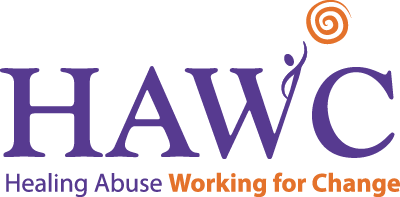While domestic abuse touches all communities, systemic oppression has created a culture in which some communities have power dynamics and can obstruct a survivor’s path towards healing.
Countless studies show that communities of color face higher rates of intimate partner violence. According to the National Coalition Against Domestic Violence (NCADV), intimate partner violence was one of the leading causes of death for black women between 15 and 35 years old. Almost 50% of Indigenous American women report having been “raped, beaten, or stalked by an intimate partner” according to the Department of Justice, and more than 50% of Asian women report physical and/or sexual violence by an intimate partner during their lifetime.
Understanding the complex systems underlying inter- and intra-racial relationships can help us begin to comprehend these staggering numbers and create plans to prevent future instances of violence in these communities.
- With rampant discrimination in all parts of life, from housing to employment, communities of color face higher rates of unemployment, lack of insurance, and wage disparity. As a result, many survivors may rely on abusers financially, making them feel trapped and unable to leave the relationship.Anyone and everyone can fight this discrimination on a daily basis. If you hear a joke or conversation that condones this discriminatory thinking, speak up and start a dialogue that reinforces the idea that communities of color are valuable and important in all areas of life.
- A history of oppression has resulted in many communities of color distrusting the justice system. So, fearing that they may be abused within the justice system, seeking to resist stereotypes surrounding police and prison, and worrying about community support can cause survivors to not report abuse or file court orders.HAWC encourages everyone to create change in their local and national communities! As a constituent, you have a voice! Talk to your local government and push for stronger laws that punish criminal abusers and advocate for fair treatment of people of color within the justice system!
- Harmful stereotypes in culture and media promote the idea of violence and aggressive “manhood” in many communities of color. Thus, facing discrimination, unemployment, and other obstacles, abusers may find that the only route of asserting this masculinity is through the dominance of their partners. Conversely, for men who are being abused, seeking help acts directly against this stereotype, meaning that many abused men of color fail to report violence altogether.Try to recognize the harmful stereotypes surrounding masculinity that exist in the media that you consume, and use that as a starting point to learn about and combat those stereotypes as they appear in your day-to-day life!
- Harmful stereotypes in culture and media promote the idea of strong, silent, and loyal womanhood in many communities of color. Thus, women place their loyalty to their race, culture, and family above their own health, and resist seeking help for fear of looking weak or reinforcing oppressive stereotypes about their partners.These silencing stereotypes exist all around us, from tabloid magazines to the family dinner table. Remember: asking for help often takes more courage and strength than staying silent. If someone is leaving a relationship or seeking support, avoid making assumptions or judgments surrounding their choices.
- Spiritual beliefs in many cultures promote negative views about resources and escaping abuse. In many communities of color, religious guidance and faith-based practices are perceived as the only resources for mental health or relationship issues, instead of working in concordance with other professional services. These beliefs may also discourage divorce, instead pushing survivors to forgive their abusers and maintain the relationship above all.There is a great need for more advocacy programs, supportive services, and treatment options for survivors and abusers of color. Show your support by researching these organizations, advocating for them, and making financial donations! With more services available, we can all work together to reduce the stigma attached to seeking help! Consider not only advocating for these organizations, but making a financial contribution to them as well!
Remember: One cannot and should not expect communities of color to be solely responsible for fighting for equality and an end to deep-rooted discrimination. Combating stigma and systemic oppression requires the support of an entire community of peers and allies, regardless of race, ethnicity, or skin color. The prevalence of domestic abuse in communities of color is the result of longstanding and deep-rooted issues…problems that will not be easily solved without a robust network of support!
There are organizations dedicated to assisting people of color who have experienced domestic abuse. If you or someone you know are a person of color experiencing domestic abuse and are seeking resources specific to your race and culture, consider the following organizations:
- Asian Task Force Against Domestic Violence*: If you are an Asian individual experiencing abuse and would like to speak to an advocate in one of 16 Asian languages, call 617-338-2355.
- Casa de Esperanza: If you are a Latin@ individual experiencing abuse and would like to speak to an advocate in Spanish, call 651-772-1611. Si eres un individuo que es latino o Latina que ha sufrido abuso y quieres hablar con una trabajadora en español, llama a 651-772-1611.
- Llámanos y Hablemos*: If you are a Spanish-speaking individual who has experienced sexual assault and would like to speak to an advocate in Spanish, call 1-800-223-5001. Si eres un individuo que habla español y que ha sufrido agresión sexual y le gustaría hablar con un(a) trabajador(a) en español llama a 1-800-223-5001.
- Manavi: If you are a South Asian woman experiencing abuse and would prefer culturally specific support services, call 1-731-435-1414 or fill out this contact form.
- Massachusetts Alliance of Portuguese Speakers (MAPS)*: If you are a Portuguese-speaking individual experiencing abuse and would like to speak to an advocate in Portuguese, call 617-864-7600. Se vocé é um indivíduo que está sendo abusado e gostaria de falar para um advogado em português, ligue para 617-864-7600.
- National Latin@ Network for Healthy Families and Communities: If you are a Latin@ person experience domestic abuse and seek Spanish-speaking resources call 651-646-5553. Si eres un individuo Latina o latino que ha sufrido violencia domestica y buscas recursos en español, llama a 651-646-5553.
- SAHELI: Friendship for South Asian Women*: If you are a South Asian immigrant experiencing abuse and would like to speak to an advocate in a specific South Asian language such as Hindi, Urdu, Bengali, Gujarati, or Punjabi, call 866-472-4354.
- StrongHearts Native Helpline: If you are a Native American experiencing domestic abuse, receive free, confidential, culturally-sensitive support by calling 844-762-8483 Monday through Friday from 9:00am to 5:30pm CST.
- Ujima (The National Center on Violence Against Women in the Black Community): If you are a black person experiencing domestic abuse, receive support and be connected to resources by calling 1-844-77-Ujima.
HAWC welcomes survivors of any nationality, race, culture, gender, gender expression, or sexual orientation, Call your 24-Hour Hotline any time of the day or week to access support if you or someone you know if experiencing domestic abuse.
*Local Massachusetts resource only


